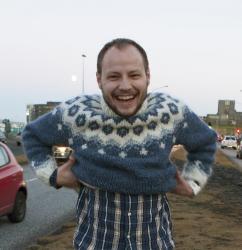Scotland Teeters On Independence And Looks North
After decades of discussion on the political and economic details of a theoretically independent Scotland, the Scottish citizens finally face the vote that could bring this country into reality. The vote on the Scottish Independence Referendum Bill, asking “Should Scotland be an independent country?” will take place this Thursday, September 18, 2014.
“We have a shared interest”
As part of the discourse on their potential independence, Scottish political leaders are looking to the Nordic countries as models in developing their social and economic policies. In addition to potentially modelling welfare and taxation on Nordic systems, other involvement ranges from applying for Nordic Council membership to simply increasing partnership in regional co-operation.
While politicians in Sweden, Denmark, and Norway have issued lukewarm statements of encouragement for Scotland’s membership, no official statement has been issued from the Nordic Council. Last year, Angus Robertson of the Scottish National Parliament spoke at the Centre for Arctic Studies in Reykjavík. “Scotland is in a vital geo-strategic position with the Iceland Gap to our north, the Atlantic to our west and the North Sea to our east,” he said.
Iceland is located in the geographic centre of the NATO member states. He emphasized an independent Scotland’s priority to rectify the UK’s lack of contribution to northern air policing and naval vessels to NATO’s northern maritime patrol group. “Environmental challenges to the High North and Arctic will impact on us all most directly,” he said, speaking of Iceland and Scotland. “We have a shared interest in taking these challenges as well as the opportunities seriously.” He also stated: “Sadly, the UK has an extremely poor recent record in taking the northern dimension seriously.”
Since 2010, the Edinburgh-based think tank Nordic Horizons has been at the forefront of what Scotland can take from Nordic politics and administration, inviting Nordic politicians, academics, and specialists to engage with Scottish citizens on policy and culture. Their website has archives of written summaries and audio recording of nearly every meeting topic. They include a lecture on the Icelandic constitution by Dr. Þorvaldur Gylfason and a talk titled “Iceland Strikes Back” with Icelog journalist Sigrún Davíðsdóttir, among others.
“Independence is not a disaster”
With Iceland’s full sovereignty from the Danish Realm only 70 years old, it serves as a clear model for independence. In 2012, President Ólafur Ragnar Grímmson discussed Scottish independence on Newsnight. “Despite difficulties that we have all faced, the moral of the story of independence in the North Atlantic—from Norway, through Iceland and growing self rule in the Faroes and Greenland—is of course that the nations have fared quite well,” he said. “Independence is not a disaster, but can be the road towards prosperity and a good society.”
Other Icelandic political figures have endorsed the movement as well. In 2013, Prime Minister Sigmundur Davíð Gunnlaugsson spoke at length on Scotland to National Collective. “My government is very focused on increasing regional cooperation,” he said, adding that Iceland would “welcome Scotland with a new, thriving relationship.” Former mayor of Reykjavík Jon Gnarr endorsed the movement, too, during his term. On Facebook, he posted a link on to the music video for Björk’s song “Declare Independence,” writing “Hey Scotland. Don’t listen to Bowie. Listen to Björk.”
https://www.youtube.com/watch?v=pXVlQTC2yB0
“Too close to call”
In early August, I spoke with Brandon Kenney, an intern for the Yes Scotland campaign. “We are hopeful, but the numbers do not look good for us,” he had said. But just last week, as I began this article, a recent YouGov poll showed the Better Together (no) campaign lead dropping significantly to just six points. (No was at 53% and yes at 47%, as opposed to 61%/39% on August 7.) The September 6 poll shockingly revealed a new 51% lead for yes to the 49% for no. The most recent YouGov poll shows a swing back toward no, leading at 52% to 48% for yes. What with differences in polling, especially accounting for the contingent of voters identified as “don’t know,” The Week has reported that it is “too close to call.”
With the poll from September 6 revealing an upswing in yes voters, the anti-independence camp revealed plans to hold a conference including all Scottish citizens, not only its politicians, on further transfers of power from Westminster to the Scottish National Parliament in the event of a ‘no’ vote on the referendum. This would allow Scotland to pursue devolution of power and constitutional change without a full split from the UK, not unlike Iceland’s Act of Union establishing home rule from Denmark in 1018. Considering that Iceland voted almost unanimously in favour of full sovereignty 25 years after the devolution of powers, independence for Scotland may only be a matter of time. It begs the very old question: “If not now, when?”
Regardless of whether Thursday will reveal a compromise or a new nation to follow in Iceland’s footsteps, change—and hopefully growth—is sure to come for Scotland.
—
Image courtesy of Kay Roxby
Buy subscriptions, t-shirts and more from our shop right here!


















